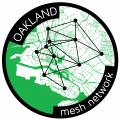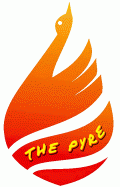Both MySpace and Facebook have become important sites for political campaigning. In 2006, Facebook launched a feature called Election Pulse, enabling members to indicate which candidates they support, learn about and discuss political issues, and gauge how candidates are faring among Facebookers through polls organized by state. MySpace, in turn, recently launched Impact Channel, fulfilling essentially the same functions as its Facebook counterpart but reaching an even greater audience. Furthermore, the Channel is heavily video-oriented, featuring a series of dialogues with the candidates in collaboration with MTV Networks. Visitors to the site are able to submit videos of themselves asking questions of the candidates, promoting a sense of being directly involved in political democracy. Similar collaborative endeavors between network television and online social networks include the YouTube/CNN presidential debate in June of 2007 and the Facebook/ABC presidential debate in January of 2008.
As the 2008 presidential election approaches, candidates have been rushing to capture the elusive yet desirable youth vote. Unsurprisingly, the Democratic party has been considerably more effective with its use of new social media to drive campaigns. In a recent CNN article, a Republican pollster is quoted as saying: “Our party is really behind in learning how to maximize this and use it to our best benefit. We were very proactive in learning how to use talk radio. When it comes to the Internet, especially social networking sites, we’re really behind.” On MySpace, Barack Obama leads the popularity contest with over 240,000 Friends- not counting the thousands of friends who link to alternate Obama profiles created to represent each individual state in the U.S. His profile consists of a regularly-updated blog, YouTube videos of his past speeches, links to further information, photographs, podcasts, and various buttons linking to his other “online habitats” on sites such as YouTube, Facebook, and LinkedIn.
Such practices serve to humanize politicians and breach the disconnect felt by voters, and are particularly oriented toward the purportedly politically apathetic youth generation of the United States today. Members of online social networks, in turn, have begun utilizing the sites to display their support for particular candidates on their profiles (much like bumper stickers), research and discuss political issues, and run local campaigns in the form of Groups. For the record, I support Obama. And Kucinich.




